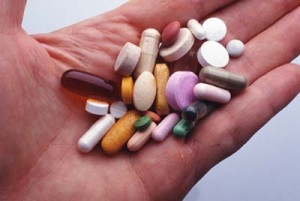 Although we all strive to eat a healthy, wholesome diet, we may not always take in all the nutrients we need on a consistent basis. Supplementing our diets with necessary fats, proteins, carbohydrates, vitamins, and minerals is okay, and we encourage it. Dietary needs change as we age, so we’ve included recommendations for supplementation for all ages.
Although we all strive to eat a healthy, wholesome diet, we may not always take in all the nutrients we need on a consistent basis. Supplementing our diets with necessary fats, proteins, carbohydrates, vitamins, and minerals is okay, and we encourage it. Dietary needs change as we age, so we’ve included recommendations for supplementation for all ages.
Everyone should be taking a high-quality multivitamin and mineral supplement and fish or krill oil (Omega-3 fatty acids) at minimum.
Young adulthood: Your 20s and 30s
You absorb nutrients easily from the diet, so merely eating a healthy diet will go a long way toward keeping you healthy. Females need more iron (30 mg daily) in the diet during the childbearing years, and most multivitamin and mineral supplements will provide that.
Be sure to get plenty of calcium (at least 1,000 mg), magnesium, and potassium to prevent issues later in life. Take calcium and vitamin D supplements if you don’t eat or drink at least 24 ounces of low-fat milk or yogurt every day or don’t get the recommended calcium and vitamin D from other foods besides dairy.
Folic acid is an important B vitamin for women who are or plan to become pregnant. Get an extra 400 mg a day.
Middle adulthood: Your 40s and 50s
In your 40s, your ability to absorb nutrients begins to go down, so stepping up your vitamin and mineral intake is a good idea. This can be accomplished by going up a level in strength in your supplements, taking a higher-quality supplement, or taking an extra dose occasionally (check with your doctor before you do any of these).
According to WebMD, “Nutrient needs change with advancing age for several reasons: the body absorbs less, it requires more, or it needs less of certain nutrients. For example, after menopause, women need less iron — 8 mg daily – compared to 18 mg daily during childbearing years — but they require more calcium.
As estrogen production decreases during menopause, more bone is broken down than constructed. In addition, the body absorbs less calcium than it did earlier in life.
After age 51, women should consume 1,200 mg of calcium daily (males need 1,000 mg). Vitamin D needs go up with age, too. After age 71, you should get 800 IU daily. Unless you drink 64 ounces of milk each day, you need a vitamin D supplement.
It’s harder to absorb naturally occurring vitamin B12 after age 50 because your body is less able to grab the vitamin B12 from foods and absorb it. The body easily absorbs synthetic B12, however, which is why experts recommend it as the primary B12 source for people over 50. Foods fortified with vitamin B12, such as breakfast cereals and other grains, or a multivitamin can help you meet your vitamin B12 needs.”
Late adulthood: Your 60s and beyond
After age 60, your body continues to absorb fewer nutrients, and it’s important to work with a doctor or a nutritionist to ensure you’re getting everything you need. You may wish to supplement with dietary shakes, especially if you find yourself eating less. Continue taking all your current supplements and eating as healthy as you can.
For all ages, water is vital to good nutrient absorption and hydration. Drink at least eight glasses, or for a more accurate gauge of your needs, take your weight and divide in half to determine the number of ounces to drink each day.





